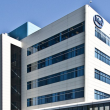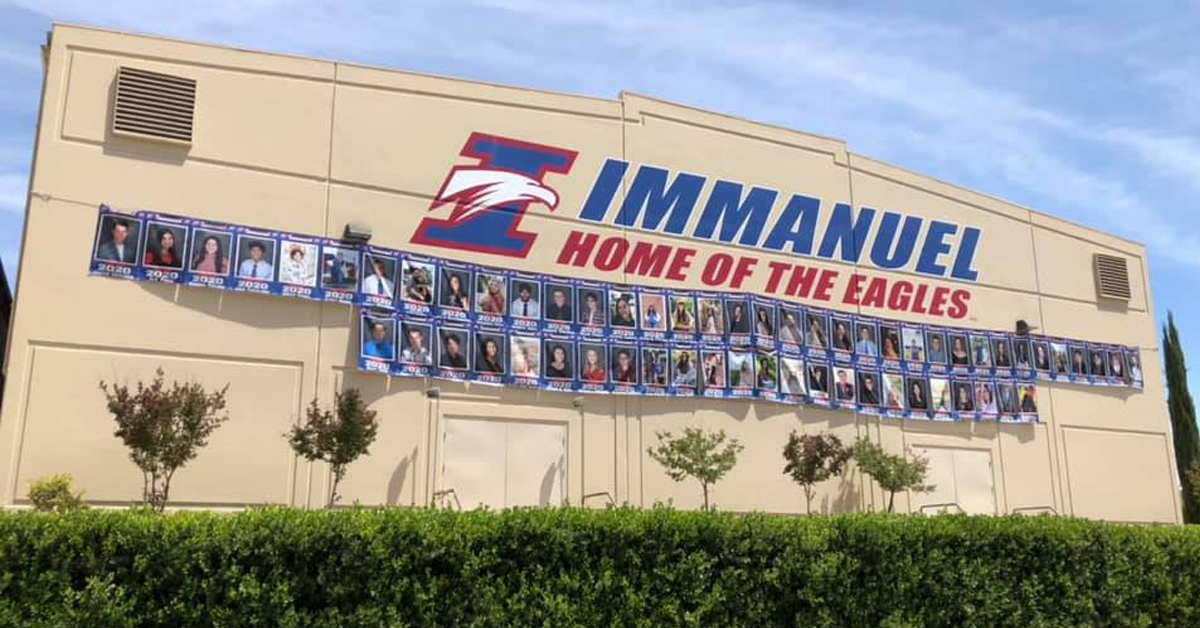We’re in the middle of the 2016 political season. I give you three things about the Fresno Grizzlies to chew on.
First, the annual outside audit of Fresno Baseball Club, LLC, the Grizzlies’ parent company, is now in City Hall’s hands.
Here are a few highlights from the Grizzlies’ 2015 finances:
- Revenue was $6,876,149. The cost of revenues (net) was $1,103,824. Gross margin was $5,772,325.
- Operating expenses were $7,832,674. Operating loss was $2,060,349.
- Other expenses – interest, miscellaneous – totaled $62,951.
- Other income (City of Fresno) totaled $810,925.
- Net loss — $1,312,375.
- Fresno Baseball Club (FBC) receives rent credit from revenue generated by city-controlled parking spaces during events it sponsors. FBC in 2015 received rent credits of about $211,000 from this source.
- City Hall pays FBC $100,000 annually toward stadium renovation/repair.
- City Hall reimburses FBC for 50% of certain facility maintenance expenses for a credit of up to $500,000 annually.
- FBC pays the city $1.5 million a year in stadium rent, minus credits for parking, renovation/repair and facility maintenance. FBC’s net rental expense in 2015 was approximately $689,000.
Second, I chatted via email with Grizzlies President Chris Cummings about last year.
Question: The net loss of $1.3 million is pretty much in the ballpark of past reports. What are your thoughts?
Cummings: “If you factor out the ‘non-cash’ items like depreciation and amortization, the 2015 loss is closer to $1,125,000. While we will still be operating at a loss in 2016, this year is going to show signs of improvement. We are still working on maximizing the extent of the improvement. As it is directly related to attendance, we believe that the strength of our promotional and special event scheduling will make us more successful.”
Question: As I read Note 4 on page 10, the stadium naming rights deal with the Chukchansi tribe is back on track. Correct?
Cummings: “From the beginning, Chukchansi has done absolutely everything that they said they would do with respect to the Naming Rights Agreement. They made all of the agreed upon payments for 2016 under the agreed upon schedule. As they are up to date with their payments, we are pretty pleased. I’m sure it has been a challenging transition for them but they are a great group of people and have always kept us informed of both issues and progress. I hope to continue our relationship with them well into the future.”
Question: The 2015 season was notable on several levels. The Grizzlies were Triple A national champions. The tribe went through high-profile governing challenges. How do you analyze the 12 months?
Cummings: “Aspects of the year were nerve wracking but it was also the most exciting thing I have been involved in. I think both (Grizzlies General Manager) Derek Franks and I both had more beer/champagne baths than we ever thought we’d have. We can both attest to the fact that the baths are pretty cold. We have also confirmed that winning is much more fun than losing. The current (2016) team has a huge amount of talent on it and we still believe that the talent will shine through before it’s too late and that we’ll have a chance to get back into the playoffs.”
Question: How is 2016 shaping up off the field for Fresno Baseball Club, LLC? (Ticket sales, corporate sponsorships, downtown revitalization, possible sale of the team, etc.)
Cummings: “We are up on season ticket sales, partial season ticket sales, group sales, merchandise sales, etc. All metrics are positive. We like that. We continue to talk to people about the team. Unfortunately, until something actually happens, we will be in a constant state of ‘talking to people.’ Since our metrics are all positive, we are optimistic that something will happen sooner rather than later.”
Question: This is the Grizzlies’ 15th season in Fresno’s downtown multi-purpose stadium. Is the stadium a blessing or a curse for the community?
Cummings: “Blessing, definitely. It has just taken time for this part of the City to develop momentum. Just look at what’s happening now that the Mayor succeeded in starting the work on the Fulton Mall. I think you will see a huge amount of downtown development arise as a result of that modest investment. As also have our friends at Bitwise who are also helping to show that life downtown can be creative and fun.”
Third, perhaps the stadium will be the source of a local twist in the upcoming general election.
Here’s my thinking.
It’s Fresno City Council Member Lee Brand vs. Fresno County Supervisor Henry R. Perea for mayor. And most likely it’s clinical psychologist Garry Bredefeld vs. business owner Jeremy Pearce for the District 6 City Council seat.
History is important here.
The nearly $50 million stadium opened on May 1, 2002. But its birth occurred in October 2000 when the City Council on a 5-2 vote decided to build it. The decision ended years of bitter community debate. Most of the conflict centered on finances.
Perea and Bredefeld were council members at the time. Both voted for the stadium.
I won’t go into every detail from the past. There are too many. It’s sufficient to note that the key to building a council majority and bringing the public along was a complex funding formula for the $3.5 million annual bill on the 30-year construction bonds.
The biggest chunk of the $3.5 million was to come from rent paid by the Grizzlies’ owner (Fresno Diamond Group at the time). The lease called for the Grizzlies to pay $1.5 million a year — $125,000 a month.
That’s a lot of money for a Triple A minor league baseball club. How did the Diamond Group expect to handle it? To a large degree, the owner planned to sponsor plenty of non-baseball events at the stadium. Concerts, for the most part.
With two major revenue streams – baseball operations, special events – the result would be significant cash-flow all year, every year. That was the plan.
There are 365 days in a (non-leap) year. The original lease called for the Diamond Group to be in control of almost all 365. The lease called for City Hall – in the form of the mayor and council members – to control 10 or so days.
The original funding formula for the bond debt called for City Hall to put on its promoter’s hat and sponsor money-making concerts at the stadium. Profit from these concerts every year would cover several hundred thousand dollars of the $3.5 million annual bond bill.
Why was all this so important? Well, City Hall had no choice but to pay the $3.5 million. To fail to do so would ruin Fresno’s credit rating, which would cause immense harm in many ways. If all the concerts (regardless of who sponsored them) didn’t come off as expected and the funding formula collapsed, then the general fund would have to pay even more than anticipated to bondholders.
The general fund goes largely to police and fire protection, with parks thrown into the mix.
The formula for funding the construction bonds did collapse, and did so almost immediately.
The big problem was the assumption about stadium concerts. Theory was one thing. Reality, though, always prevails. Simply put, a big stadium in downtown Fresno isn’t the best place to hold one profitable outdoor concert after another.
The reasons are many, not the least being the dramatic rise of Indian gaming in the Valley. Bottom line – the Diamond Group and city officials soon realized that the expectations for concerts pitched to the public in October 2000 was wishful thinking.
But that $3.5 million annual bond debt and the Grizzlies’ $1.5 million annual rent didn’t go anywhere.
In hindsight, events moved rather quickly. The Diamond Group sold the team to Cummings and Fresno Baseball Club. The team’s 30-year stadium lease went through several changes. One of the big ones came in 2009 when (as we’ve seen from the 2015 financial report) the rent was essentially cut in half thanks to various city subsidies/credits.
Brand, who joined the council as District 6 representative in January 2009, was the key negotiator for City Hall. It’s not a stretch to say the Brand-brokered changes saved City Hall and the Grizzlies a lot of grief.
One of the most interesting tweaks to the lease occurred (if my memory is correct) in the waning days of then-Mayor Alan Autry’s second term (he was termed out in January 2009).
The Grizzlies would no longer be in charge of the stadium for the vast majority of days in the course of a 365-day year. Instead, the Grizzlies would have formal control of the stadium only for days deemed necessary to the team. In other words, the Grizzlies had the stadium for games and practices and special events. Cummings and his partners had the stadium for other special events they sponsored. Otherwise, all the other days would be controlled by City Hall.
City officials with the original lease could sponsor 10 concerts a year. With the amended lease, city officials could sponsor something like two hundred concerts a year.
Chukchansi Park holds 12,500 people. I figure a sold-out City Hall-sponsored concert at the stadium would net the city’s general fund a cool $50,000. Two hundred times $50,000 is $10 million – year in and year out.
That would hire a lot of cops and open a lot of two-company firehouses.
Why didn’t City Hall do that? After all, it wasn’t merely John Carbray and other Fresno Diamond Group officials who, in October 2000, assured the public that a nearly $50 million taxpayer-funded downtown multi-purpose stadium would be a wildly successful year-‘round venue for outdoor concerts. Five council members had such faith in this proposition that they promised they could do exactly what Carbray said he could do – promote money-making concerts themselves.
Most city officials had their eyes opened early in the 21st century. They couldn’t pull off their share of the promised money-making concerts. That helps explain why they were willing to rewrite the lease for Cummings and partners. Harsh experience taught City Hall to have empathy for the Grizzlies.
Now we’re in the 2016 election season. Perea and Bredefeld, two architects of the October 2000 funding formula, want to return to power at City Hall.
Full disclosure: I think the stadium is a good idea. I think Perea and Bredefeld made the right decision. I think Brand did a great job on the renegotiated lease. Successful public policy isn’t always a straight line.
I don’t see how Perea and Brand can use the stadium controversy as an effective campaign weapon on the other guy.
Keep in mind that Perea left the council in January 2003, when the Grizzlies had one season in the new stadium under their belts. Perea knew firsthand how hard it was to hold successful concerts in the stadium.
But Bredefeld left the City Council in January 2001, a full 16 months before the stadium opened. He, as an elected public official, never had the pressure of putting on a money-making concert at the stadium.
Pearce doesn’t have a history with the stadium as an elected official. Pearce on the campaign trail is criticizing Bredefeld’s vote in October 2000. Pearce says the huge debt is a drag of city finances, in particular the general fund. Pearce says the stadium vote is indicative of Bredefeld’s enthusiasm for spending taxpayer money.
Bredefeld says the stadium is a blessing.
I was sitting in a studio this spring at local radio station PowerTalk 96.7. Fresno Unified Trustee Brooke Ashjian was the show’s guest host. He was interviewing District 6 candidates, one after the other, in the run up to the June primary.
Bredefeld and I chatted briefly during a commercial break. I told him that I thought the stadium was a good idea. He said there was no good reason for reducing the Grizzlies’ rent (thus hurting the general fund). He said the Diamond Group had made a deal in October 2000 — $1.5 million in annual rent, not a penny less. He said city officials made a mistake in not insisting that the Diamond Group (or Fresno Baseball Club) pay the full $1.5 million. If the Grizzlies owner didn’t do that, Bredefeld told me, the lease enabled the city to take over the team. He said the city should have done that rather than put more pressure on the general fund.
In other words, Bredefeld was saying every facet of the original formula for funding the $3.5 million annual bond bill was legitimate and doable – if only someone with power had the will to make it work.
Here’s what I want to know: If Bredefeld wins the District 6 seat in November, will he promise to host/sponsor money-making concerts at Chukchansi Park?
He could begin with, say, 10 concerts in 2017. Then he would work up to several dozen in 2018. By the time he’s up for re-election in 2020, he could be sponsoring 100-plus concerts annually in the multi-purpose stadium.
All of them money-making, of course.
Bredefeld, alone among the five council members who voted for the stadium in October 2000, never had a hands-on opportunity to prove the validity of the bond funding formula he helped sell to the public. The other four did stick around City Hall long enough to shoulder at least a bit of responsibility for that failed formula.
And now Bredefeld is the only politician from that era saying the formula in every detail remains legitimate and doable.
If Bredefeld really believes that, he’ll promise voters that he – all by himself – will turn Chukchansi Park into a perpetual Woodstock.











Assemblyman Patterson was absolutely correct when he fought against this money pit of a disaster. As a businessman he knew a goose egg when he saw it and once again Fresno leadership stupidity hits them in the you know what and of course they are all so surprised except one courageous leader.